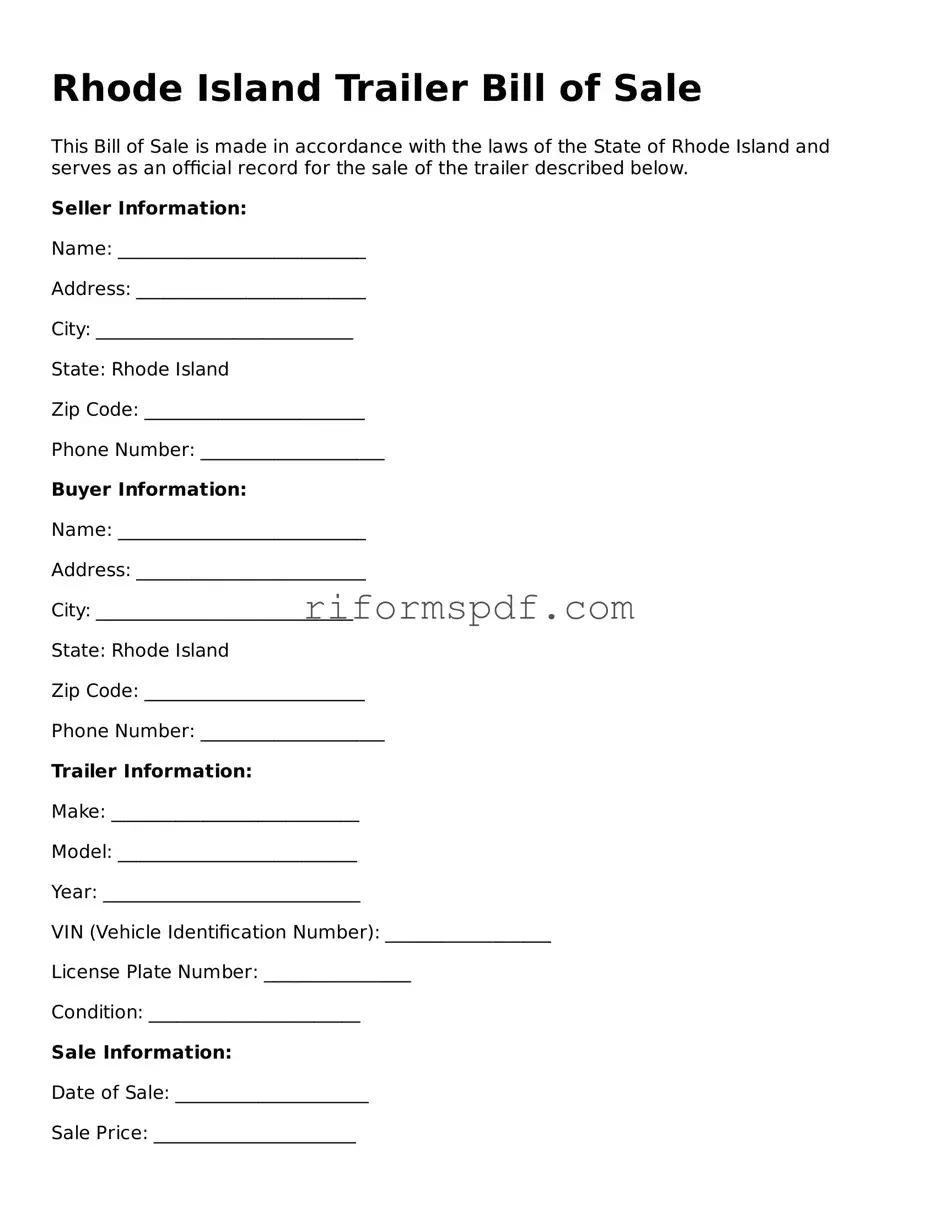Printable Trailer Bill of Sale Form for Rhode Island
The Rhode Island Trailer Bill of Sale form is a legal document used to transfer ownership of a trailer from one party to another. This form serves as proof of the transaction and includes essential details about the trailer, such as its make, model, and identification number. Understanding how to properly complete this form is crucial for both buyers and sellers to ensure a smooth transfer process.
Launch Editor

Printable Trailer Bill of Sale Form for Rhode Island
Launch Editor
Finish the form now and be done
Edit Trailer Bill of Sale online and skip the paperwork.
Launch Editor
or
⇓ PDF Form
